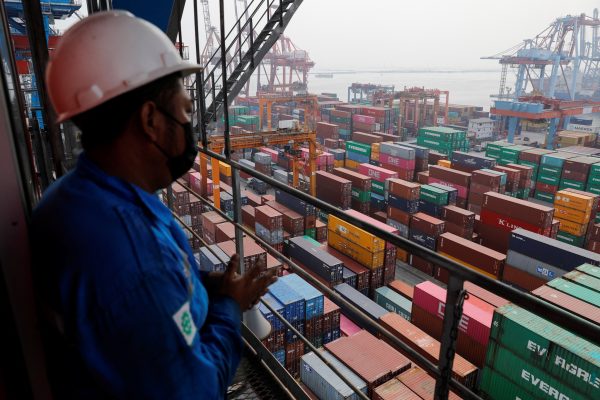Indonesia provides an interesting example as bilateral trade between Indonesia and the EU has increased by approximately 15 per cent in the last decade, with a widening trade balance surplus for Indonesia. The ongoing negotiation for the Indonesia–EU Comprehensive Economic Partnership Agreement (IEU–CEPA) would also be Indonesia’s most comprehensive and ambitious one-on-one Free Trade Agreement.
CBAM works as a mechanism to balance the carbon price paid for EU products covered by the EU Emissions Trading System and the price paid for imported commodities. Businesses that import certain products into the EU are required to buy CBAM certificates to cover the difference between the carbon price paid in the country of production and the price of carbon applied under the EU Emissions Trading System. The EU expects climate laggards that interact with the EU market will adopt stricter climate policies and standards to avoid paying for CBAM certificates.
CBAM’s impact on Indonesia may seem limited as Indonesia’s exports to the EU totalled US$17.7 billion — or around 7.78 per cent of its total exports — in 2021. But almost 20 per cent of Indonesia’s exports to the EU would be affected by CBAM. Iron and steel account for 5 per cent of total exports from Indonesia to the EU, which suggests that CBAM impacts may be marginal in terms of total trade but more impactful on the bilateral trade balance.
According to the Indonesian Ministry of Trade, Indonesia could face a 16.8 per cent increase in the tariff rate for iron and steel exports. 27 categories of steel products already face a tariff quota rate of up to 25 per cent. Though this amount is not significant relative to Indonesia’s total export value, the additional CBAM tariff will put Indonesia’s iron and steel exports in a relatively disadvantageous position by increasing the cost of goods and potentially reducing opportunities for further export-led development.
Indonesia should see CBAM as an opportunity to adjust and anticipate future climate-related trade measures. CBAM has expanded beyond the five initial emission-intensive sectors. Alongside electricity generation, iron and steel, cement, aluminium and fertilisers, CBAM sectors have been updated to cover hydrogen and some downstream products, like iron, steel screws and bolts.
The EU proposed regulation on deforestation-free products in 2021, setting certain requirements on high-risk products, such as palm oil and coffee, which are Indonesia’s top export commodities. The World Trade Organization recorded an increase in environment-related measures from 1143 in 2011 to 2250 in 2021. CBAM and similar measures are continuously evolving, so Indonesia needs to formulate a strategy to tackle more climate-related trade measures in the future.
Global demand for ‘green steel’ and other sustainable-rated materials is set to expand, and early adopters will profit as stragglers scramble to gain access to the most cost-effective decarbonisation strategies. Indonesia could start by concluding and implementing domestic carbon pricing regulations. State and business-led companies should also harmonise the sustainability standards in the production, traceability and transparency of carbon embedded in the supply chain.
Indonesia could also use its economic diplomacy, such as in the G20 or ASEAN, to push for more rules-based trade measures. This could be achieved by pushing World Trade Organization reform to include mechanisms for preventing unfair implications of climate-related trade measures. Rules-based trade measures would ensure the cost of the green transition is more equally shared through increased access to clean technology and improved capacity for better governance.
The growing number of climate-related measures may also play a part in ongoing bilateral negotiations. In IEU–CEPA’s case, Indonesia could call for CBAM exemptions to a certain threshold, allowing for a softer transition.
Complementary policies such as trade facilitation and technological transfer should be implemented. This could be funded by the redistribution of the CBAM revenue — estimated to be between €5 billion to €14 billion (US$5.4 billion to US$15.1 billion) annually. Transparency from the EU and their commitment to sharing the burden of decarbonisation for developing countries is critical. Without working on complementary policies to offset the negative impacts, CBAM will increase unfair carbon pricing and heightened trade tensions.
Trade measures such as CBAM are intended to push for more ambitious and collective climate policies, indicating that climate issues will be further integrated into economic decisions globally. Indonesia, as well as other economies, must consider both the challenges and opportunities in the rise of climate-related trade measures. It is imperative to take immediate steps to respond to the impact of these measures.
Novia Xu is a Researcher at the Centre for Strategic and International Studies.
Nadya Daulay is a Research Assistant at the Centre for Strategic and International Studies.

